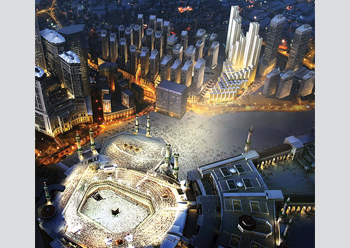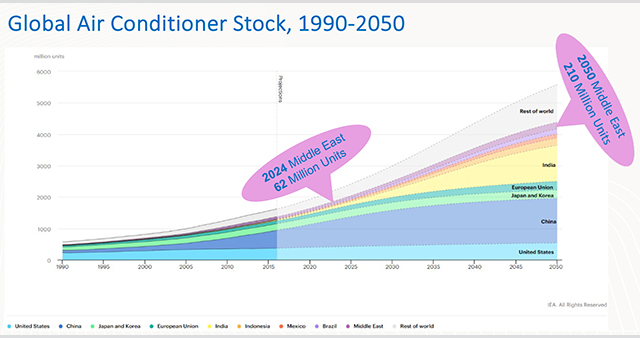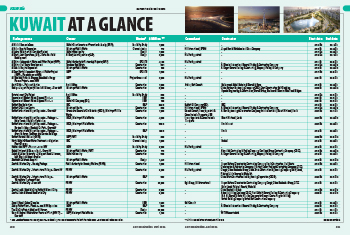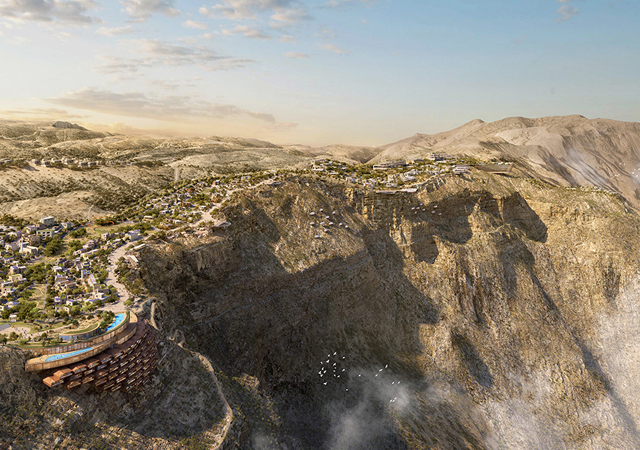
 Jabal Omar development ... Phase Four in progress.
Jabal Omar development ... Phase Four in progress.
While the construction scene in Makkah and Madinah has been relatively quiet over the past year or so due the restrictions posed by the global coronavirus pandemic, these two holy cities are slowly but surely setting in motion plans for increased activity over the medium term.
These plans have just received a further impetus with the lifting of the ban on ownership of land by non-Saudis in Makkah and Madinah, which will spur growth both in commercial and residential developments in the cities.
In May, Saudi Arabia announced the decision to allow companies listed on the Saudi Stock Exchange to own properties in Makkah and Madinah, which will have far-reaching implications and is widely seen as a major move by the government to encourage foreign investment in these prime markets.
Makkah and Madinah attract millions of pilgrims each year, thus religious tourism is central to their economies. While the Saudi authorities have had to restrict the number of pilgrims travelling to these cities to curb the spread of Covid-19, once the pandemic is behind us the government will need to put in place a strategy to facilitate – in full safety – the surging numbers of Muslims that will want to take part in the annual five-day Hajj pilgrimage. And this number is likely to exceed the 2.5 million Hajj pilgrims the city accommodated in 2019.
 |
|
Masar ... a massive cultural destination. |
Early this year, Saudi Arabia launched a new company, Kidana, which will be responsible for the development of holy sites at Makkah and Madinah. The company has an authorised capital of SR1 billion ($270 million). Headquartered in Mina, Kidana is the first closed joint-stock company to be owned by the Royal Commission for Makkah and the Holy Sites (RCMC).
RCMC’s future priorities include the activation of the Holy Mosque and Holy Sites Programme, as well as the development of a land and real estate programme, a transport and transport infrastructure scheme, a partnerships investments plan, and a financial sustainability programme supported by the Center for Comprehensive Management.
In line with Saudi Arabia’s plans to accommodate the growing number of pilgrims, the kingdom resumed expansion work on the Grand Mosque in late May, according to Arab News. The Saudi Engineering Projects and Studies Agency has issued 60 licences for carrying out the construction, electromechanical works and architectural finishes at the mosque, the newspaper said.
This apart, the kingdom will need to ensure that transport and hospitality infrastructure keeps pace with the anticipated growth in pilgrims.
In terms of accommodation facilities, Makkah and Madinah account for around 40 per cent of the total number of hotels in Saudi Arabia’s construction pipeline. According to STR’s AM:PM platform, of the 73,057 rooms across the three phases of the kingdom’s hotel pipeline, 28,052 rooms are under development in Makkah, and a further 1,228 are being built in Madinah.
Several hotels are under construction in the ambitious Jabal Omar project, located near the Makkah mosque. The developer, Jabal Omar Development Company (JODC), recently signed up Archipelago International, one of largest privately owned and independent hotel management group in Southeast Asia, to manage two of its hotel properties in the project.
The hotel management agreements are for the five-star luxury property Jabal Omar The Royal Alana Makkah which boasts 581 rooms and the five-star Jabal Omar The Alana Makkah with 560 rooms.
The hotels, which are located in Phase Four of the Jabal Omar project, are currently under construction and are situated adjacent to each other in a prime location overlooking the Makkah mosque.
Among other hotel chains expanding their network in the kingdom is Marriott International which recently signed an agreement with Al Saedan Group, a leading real estate company in the Middle East, to open three hotels across Saudi Arabia – two of which will be located in Makkah.
The multi-project agreement includes the world’s largest Aloft Hotel and a Courtyard by Marriott in Makkah. All three properties are projected to open by 2025.
Aloft Makkah Taysir is anticipated to be the brand’s largest hotel in the world with plans for 1,000 guest rooms. Marriott International continues to further expand the footprint of Courtyard by Marriott in Saudi Arabia with the signing of Courtyard by Marriott Makkah Kudai.
Developers are also looking at boosting the residential stock in the city. Recently, Dar Al Arkan launched a prime integrated real estate project, Dar Al Mashaer, in the heart of Makkah city.
Located in a prestigious neighbourhood only 10 minutes’ drive from Masjid Al Haram and Jamarat Bridge, the seven-tower development will boast a total of 314 top-tier two, three- and four-bedroom apartments, together with six penthouses, complete with private swimming pools.
The development, spread over an area of 6,300 sq m with integrated leisure facilities, will set a new benchmark in urban living as well as offering the opportunity to spend quality time in one of the holiest cities in the world, according to the developer.
Work, meanwhile, is well under way on creating a cultural destination known as Masar in the western part of Makkah, which has called for a major transformation of the area. The project is mandated by a Royal Decree for the development of King Abdulaziz Road (KAAR).
The development’s masterplan is based on a main two-way road, 80-m wide, which allows for the seamless movement of vehicles and buses to and from the Holy Mosque. The two sides of the road will be separated by an urban cluster traversed by a pedestrian boulevard that will allow pilgrims to move easily to the Haram Al Sharif area from the western entrance of Makkah without hindering traffic flow.
The urban cluster, which extends through the length of the project, will host international hotels, commercial centres and retail outlets, green parks, government services complexes, medical and health centres, and many integrated cultural, recreational, and social amenities.
Masar spans a total area of 1.25 million sq m, in addition to the 141,000 sq m occupied by King Abdullah Mosque, which sits at the heart of the project. Extending 3,650 m long and 320 m wide, it links the First, Second and Third Ring Roads to the key roads – Abdullah Arif and Mansour streets. It also includes tunnels, metro stations, parking lots, and hotels, as well as residential, commercial, office, and service facilities.
The destination will also feature several landscaped green areas, as well as integrated cultural, recreational and social amenities.
Umm Alqura for Development and Construction (UAQ) is the owner and master-developer of the project.
Meanwhile, in Madinah, a major economic city known as Knowledge Economic City (KEC) is taking shape. In April this year, the city witnessed the inauguration of a number of projects, while several commercial, residential, tourism and entertainment projects received the go-ahead with the signing of key contracts.
These contracts included a tripartite agreement between the Saudi Tourism Development Fund (TDF), Riyad Bank and the KEC to finance Phase One of the project, which will be implemented with the support of the Madinah Region Development Authority, according to Arab News.
Phase One includes the construction of a commercial market, a Hilton hotel, the Boulevard commercial walkway, recreational area and health and sports centre.
The Tourism Development Fund of the Ministry of Tourism is financing the project as part of the fund’s strategy to provide support to private sector investors and boost the establishment of modern tourism projects
KEC has also agreed to the terms for the management of the Madinah Gate Fund Project Development, which aims to develop the lands adjacent to the Haramain high-speed train station in Madinah and the area overlooking Prince Nayef Road. The development includes the construction of a 325-key four-star hotel and hotel apartments managed by the Hilton Group, markets, shops, restaurants, entertainment area, a bus stop and other services.





















_0001.jpg)


.jpg)
















.jpg)








.jpg)


